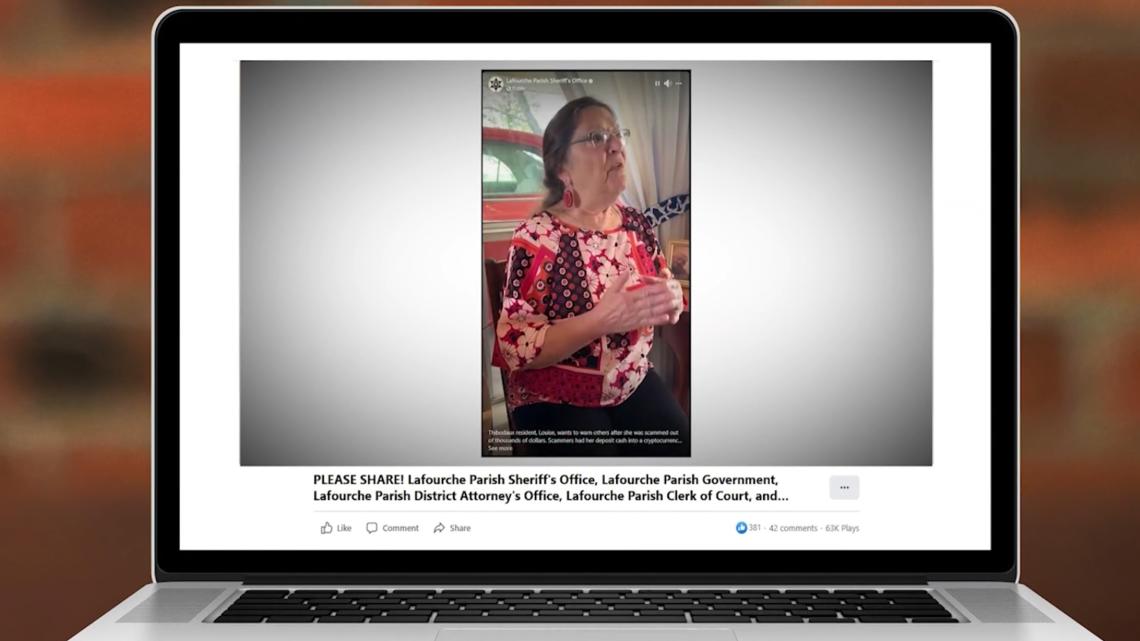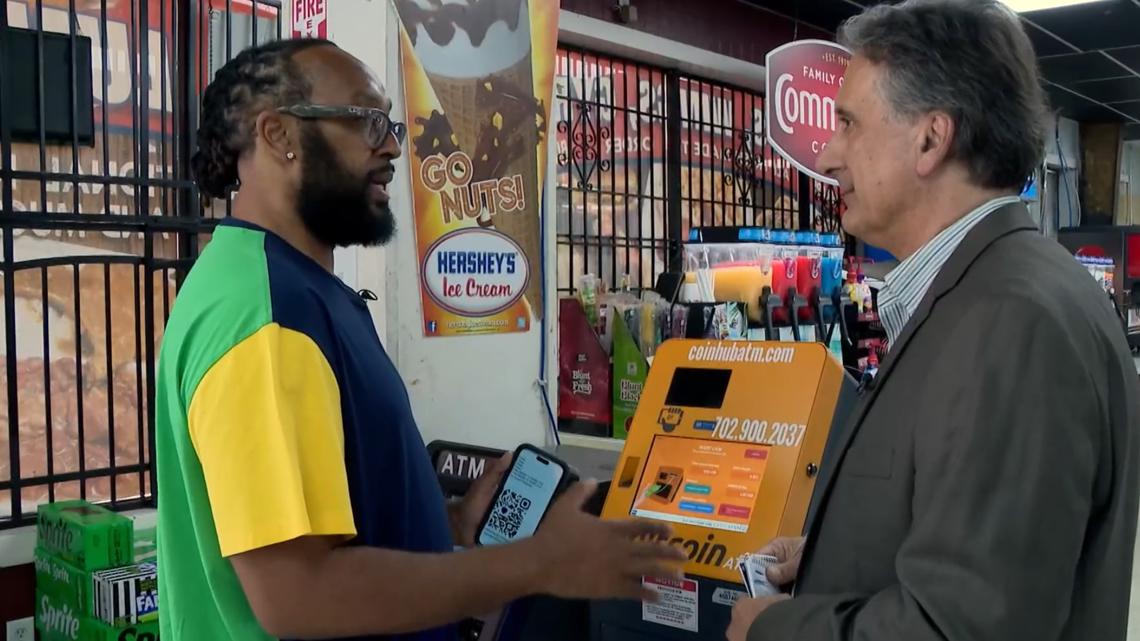While crypto-currency ATMs are relatively new, they have been popping up everywhere, with hundreds in the New Orleans metro area alone.
NEW ORLEANS — A woman named Louise, from Thibodaux, is featured in a recent social media post by the Lafourche Parish sheriff’s office warning people about the latest fraud sweeping Southeast Louisiana: scamming victims into putting money into crypto-currency ATMs.
“He had me go to my savings account and told me that the FBI thought that I should take a large amount out of there also,” Louise says in the video. “I realized I think at that point, something is just not right here.”
Other public service announcements posted by the sheriff’s office feature parish leaders, such as Sheriff Craig Webre, warning the public, “The Lafourche Parish Sheriff's Office does not accept crypto-currency.”
And in yet another post, the sheriff’s office added a little star power with a meme of comedian Kevin Hart in front of two cryptocurrency ATMs repeating, “Look at me. No!”
“This is really just a new way of doing an old crime,” said Capt. Brennan Mathern of the sheriff’s office.


Almost as soon the new form of money called crypto-currency became widespread, sophisticated scammers turned to an even newer form of technology – crypto-based ATMs – to prey on victims throughout the New Orleans metro area.
WWL Louisiana previously revealed how crooks are getting people to feed money into these ATMs using false promises of getting their loved ones out of jail on electronic ankle bracelets.
But the scammers are going far beyond that, using every other trick in the book to steal from people using this new machinery of modern life.
Similar to old-school versions of fraud, con artists are using scare tactics to fool people into thinking their bank account has been hacked, that they urgently need to make a mysterious overdue payment or they need to pay to get a loved one out of jail.
Matherne said the Lafourche Sheriff's office launched the social media education campaign after 160 parish victims filed complaints just last year, losing $657,000.
In a previous WWL Louisiana story, Marcus Downs of Hammond explained how scammers posing as the Washington Parish Sheriff's office tricked him into paying $2,000 by promising to get his brother released from jail on an ankle bracelet.


They directed him to a Bitcoin ATM machine inside a convenience store where he fed $100 bills into the machine.
“Took everything. Left me with thirteen dollars in the bank,” Downs said. “I wanted to cry. It was like a slap in the face.”
Downs added that he had never even heard of crypto ATMs until he found himself feeding money into one under the direction of a scammer.
While crypto-currency ATMs are relatively new, they have been popping up everywhere, with hundreds in the New Orleans metro area alone.
The ATMs are advertised as a way to conveniently purchase Bitcoin and other cryptocurrency. Yet this new form of money is not widely understood as an alternative to government-issued currency, another feature that makes the machines an ideal way to take advantage of unsuspecting victims.
“With the crypto-currency, they might not understand the technology,” Matherne said. “And it's not really just the elderly. We've had victims as young as 20 years old fall prey to these crypto-currency scams.”
The Orleans Parish Sheriff's office is investigating the version of the fraud that uses false promises of getting a person out of jail on an ankle monitor.


Capt. Lance Wade, OPSO commander of intelligence, said of the fraudsters, “They're getting more and more clever. They're using more and more ways to persuade people.”
A local company that owns and operates about 200 crypto ATMs in the area said that person-to-person money transfers are supposed to prohibited on the machines, and scam warnings pop up on the screen before a person can use one.
But Will Hayne, CEO of Pelicoin, said clever con artists are finding ways around the safeguards.
“It never really should happen at our machines,” Haynie said. “But sometimes they're coached around our safeguards or they're not paying attention to what they're reading.”
Haynie said he can understand how crooks have adopted crypto for fraudulent purposes.
“It’s non-reversible, you can't charge it back, you can't reverse it and it's done in seconds,” he said. “So it's the equivalent of convincing someone to go in their bank, withdraw cash and then go outside and give it to you.”
Haynie said his company is aware of the problem and has tried to do what it can to curtail the fraud.
“While that is a very small percentage of our transactions, it is still mind-numbingly frustrating. It's something that we've been dealing with from the beginning,” he said.
Haynie said he works with law enforcement, including the FBI, when people have been ripped off. But he concedes that arrests have been elusive.
Haynie and police say the crooks can easily operate from other states or countries.
Authorities say the best tactic is prevention. That’s what gave rise to the Lafourche public awareness campaign, which Matherne said has been highly successful.
“We went from those crazy numbers in 2024 of having 160 people be scammed and all of that money going through crypto-currency machines, to we've only had two crypto-currency scams in 2025,” Matherne said.
To keep from becoming a victim, Matherne and others in law enforcement tell people to be skeptical of any unsolicited call, text or email, no matter how official-sounding it might look or sound.
And if anyone directs you to a cryptocurrency ATM, Matherne said, stop in your tracks because it’s probably a scam.
► Get breaking news from your neighborhood delivered directly to you by downloading the new FREE WWL-TV News app now in the IOS App Store or Google Play.





 English (US) ·
English (US) ·